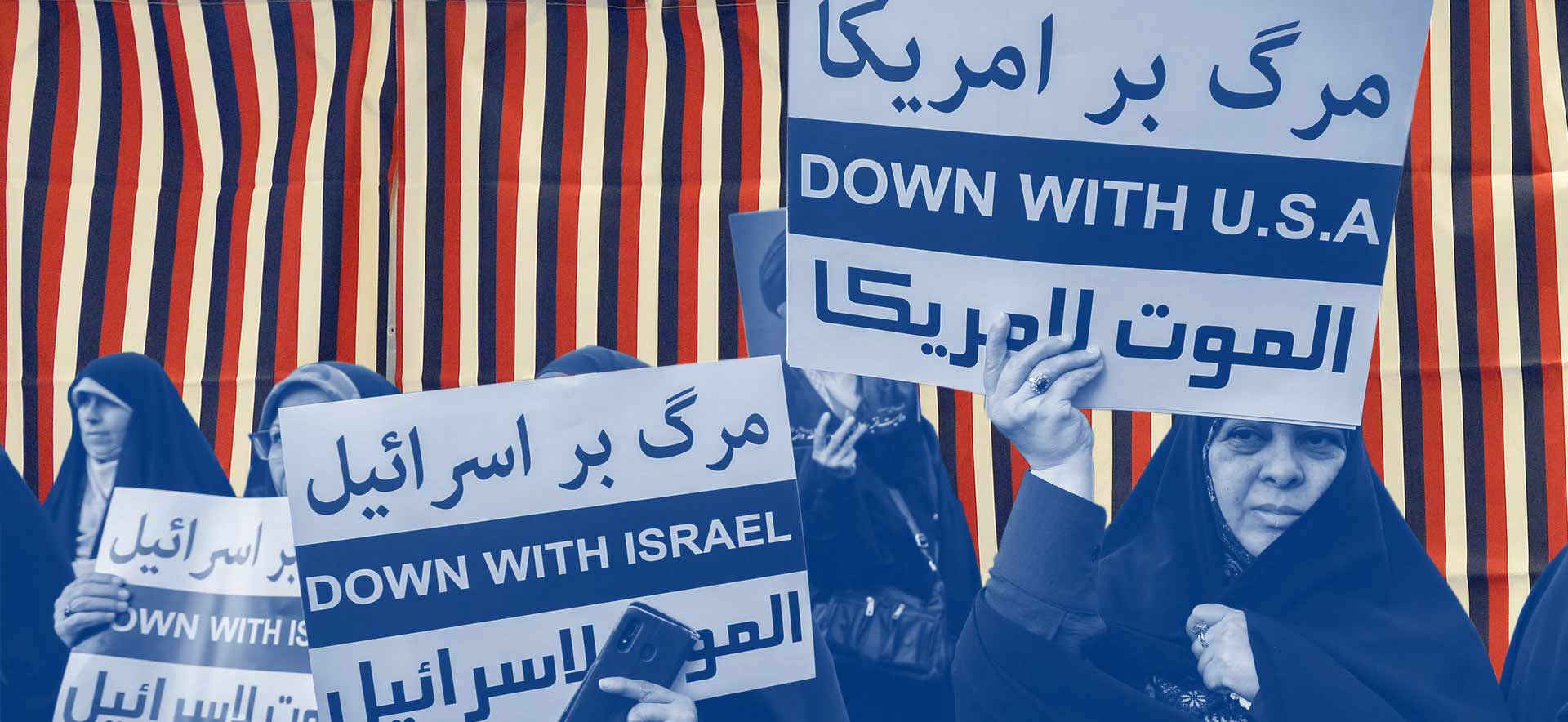U.S.-Iran policy: What are the challenges and opportunities for the next president?
In the run-up to the presidential election, Brandeis Stories asked university faculty to provide expert analysis and insight into some of the issues raised during this campaign season.

By Nader Habibi
October 18, 2024
 Regardless of who wins the November election the next U.S. president will face very difficult challenges in dealing with the Islamic Republic of Iran. More than three decades of economic sanctions have severely weakened Iran’s economy but the Islamic regime has not altered its anti-Western foreign policy, and the Gaza war has sharply increased the risk of a full-scale confrontation between Iran and Israel.
Regardless of who wins the November election the next U.S. president will face very difficult challenges in dealing with the Islamic Republic of Iran. More than three decades of economic sanctions have severely weakened Iran’s economy but the Islamic regime has not altered its anti-Western foreign policy, and the Gaza war has sharply increased the risk of a full-scale confrontation between Iran and Israel.
The next president must take four important developments into account as he or she formulates U.S. policy toward Iran. First, Iran is expected to continue its support for Hamas, Hezbollah, and Houthis who are currently fighting against Israel, despite the fact that these groups have suffered severe setbacks in recent weeks. This support has brought Iran and Israel closer to a direct confrontation, which the U.S. wants to contain. The continuation of this conflict will also increase the risk of a direct military confrontation between the U.S. and Iran, beyond the current anti-missile defensive operations of the U.S. military.
Second, the collapse of the nuclear agreement and escalation of tensions with Israel have increased Iran’s incentive to develop a nuclear weapon. Iran has already reached a high level of uranium enrichment and, according to Western experts, can build a nuclear bomb within a few months, though a political decision for taking the remaining steps has not yet been made. Since the U.S. is determined to prevent Iran from acquiring nuclear weapons, the next U.S. president will have to decide on the mix of sanctions, incentives, and military threats that can prevent Iran from completing the final stage.
Third, the pressure of economic sanctions and the relentless attempts of the U.S. and its allies to isolate Iran have pushed Iran closer to Russia and China. Economic relations dominate Iran’s relations with China, which buys nearly 90% of Iran’s clandestine crude oil exports. China is also the main source of imports that many other countries refuse to sell to Iran because of the economic sanctions.
Iran’s relations with Russia are even more worrisome for the U.S. The bilateral Iran-Russia relations are more oriented toward strategic and military cooperation as both countries are targets of severe Western sanctions. Iran has supported Russia’s war efforts in Ukraine by exporting inexpensive drones and short-range missiles, in return for advanced weapons such as jet fighters and air defense systems. Both China and Russia have also welcomed Iran into BRICS and the Shanghai Cooperation Organization; these opportunities have further reduced Iran’s international isolation. China has also brokered a rapprochement between Iran and Saudi Arabia. The next U.S. president must take into account the roles of Russia and China in diminishing the effectiveness of Western attempts to isolate Iran.
Fourth, the election of Masoud Pezeshkian as Iran’s president has created a window of opportunity for a reduction in hostilities with the U.S. Among Iran’s political elite, Pezeshkian is considered a moderate but his role in Iran’s foreign policy is subordinate to the Supreme Leader Ali Khamenei. The fact that Khamenei endorsed and facilitated Pezeshkian’s presidency, however, implies that Khamenei is also supportive of a rapprochement that can reduce the pressure of economic sanctions on Iran’s economy. So far Pezeshkian has focused on a “global engagement” with Iran’s neighbors and Asian countries, but he has not taken any action to reduce the tensions with the U.S., partly because this issue remains fully under the purview of Khamenei.
The history of U.S.-Iran relations in the past four decades suggests that the outcome of the U.S. election matters for the American policy toward Iran. As noticed by some observers, there have been two periods of rapprochement between Iran and the U.S. and on both occasions a moderate Iranian president coincided with a Democrat U.S. president (Bill Clinton-Mohammad Khatami (1998-2004); and Barack Obama-Hassan Rouhani (2012-2015)).
Hence a Harris presidency, which is likely to continue President Biden’s Iran policies, will have a better chance to reduce the level of hostilities through a new agreement, in comparison to a Trump presidency. Based on Trump’s policies toward Iran during his administration, his presidency could result in more sanctions and other pressures on Iran. Either president will have to take complex factors into account, and both are expected to take measures to reduce the security and military risk that Iran poses to Israel.
Nader Habibi is the Henry J. Leir Professor of the Economics of the Middle East in the Crown Center for Middle East Studies.


